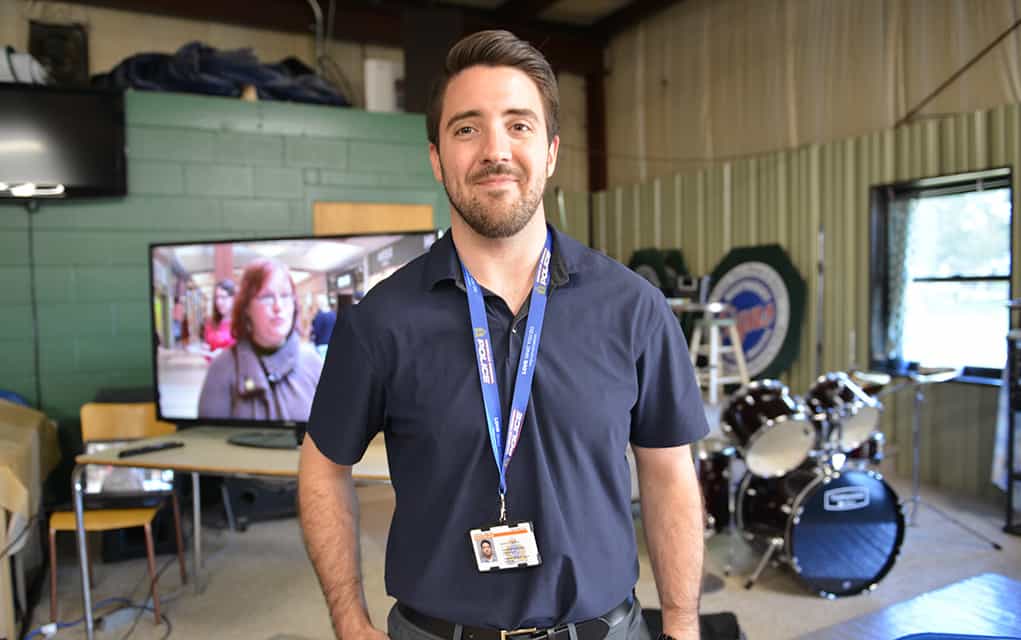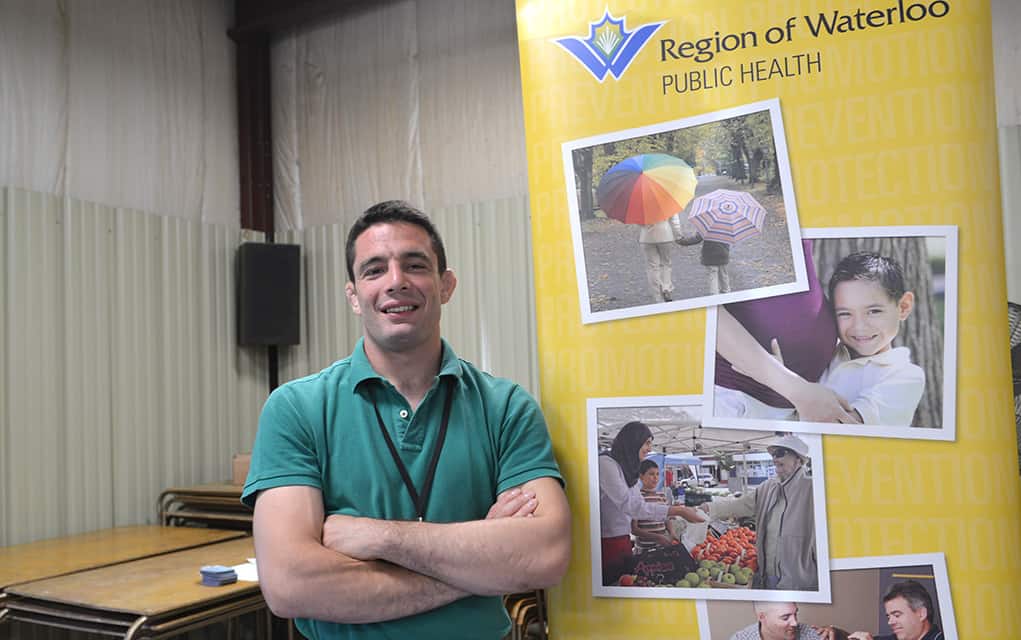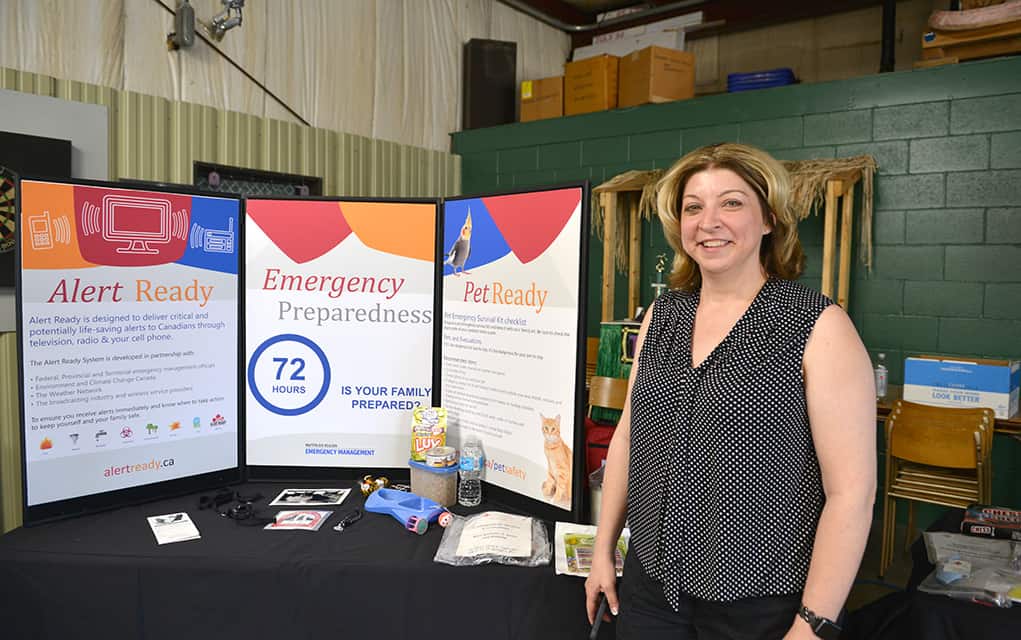Approaching a year since a torrent of water swept through the Grand River system, flooding parts of Woolwich and surrounding townships, officials are hoping residents are now better prepared.
An open house event Monday evening in West Montrose focused on emergency preparedness rather than assessing what happened June 23, 2017, as has been the case at previous public meetings. Woolwich officials were joined by representatives from groups such the Red Cross, Waterloo Regional Police and Mennonite Disaster Service for a public education forum to inform residents about the various services provided in an emergency situation, as well as how to prepare for the worst.
“It’s more about how the resident can really prepare themselves and their family,” said Avril Tanner, Woolwich’s community emergency management coordinator. “There’s lots that a homeowner can do before a flood even occurs, like preparing a family emergency kit. So things you might need for your family if you needed to evacuate.”
The Grand River Conservation Authority has made changes to flooding notifications after the flood that took place last year.
“They’ve now created what’s called a flood zone,” explained Tanner. “So the properties that are in different zones and that will go along with the notification piece.”
The changes came in the wake of complaints the agency didn’t get the word out fast enough after heavy rains in the north end of the river system in the early hours of June 23 swelled waterways beyond the capacity of downstream dams. The GRCA has also moved to update its mapping of the system to better predict flooding incidents.
In the event of a flood, however, there are other agencies prepared to deal with the aftermath, as noted among those with booths at this week’s information session.

For instance, Bruce Miano, a public safety inspector for the Region of Waterloo, pointed out that residents can have their private well water tested for potentially harmful bacteria at no charge.
“Unlike municipal water, which is tested around the clock, for your own private well it’s good to test at least three times a year or after an emergency like a flood,” said Miano.
He also recommended that no one even consider drinking or using their well water after a flood has occurred.
“If there are chemicals as is often the case with floods, the safest thing to do is to resort to bottled water until your testing results come back,” he suggested.
Another little known service is the non-profit Victim Services of Waterloo Region, which provides emotional support to anyone who needs it during and after a crime or tragic circumstance. They also offer referrals to longer term services that help with whatever the individual needs.

“Usually in a natural disaster, Red Cross is on the scene for the practical assistance, but we provide the emotional and psychosocial support,” said the organization’s Bruce Moffatt. “For example, kids that may be upset, or people that have lost their home, we talk them through and ask ‘Can we call anybody for you?’ ‘Here’s a place you can go’, ‘Here’s some next steps’, and we can call the insurance company for them. In an immediate crisis, people aren’t really sure what to do next. They’re overwhelmed with what’s going on. So we’re there to help them take a breath and see what the next steps are and help them come out with a plan, so they’re focused on something, too.”
“We try to get out to these events as much as we can because it’s one of those services where until you need us, people don’t really know who we are,” he added.
There are other factors to consider in a crisis situation. Thorough preparedness beforehand is crucial for pets in emergencies, according to Tanner.
“You might want to think about having a plan ahead of time as well. So thinking about if you had to leave the town that you live in, think of a shelter that’s out of town plus one that’s in town that you’re more familiar with,” she said. “Have arrangements pre-made, so you’ve thought ahead of time if you need to put them in a shelter. If we have to have a reception centre or something like that, sometimes pets aren’t allowed, so that’s really hard on people. So having that process thought through ahead of time is an excellent idea.”
Informational brochures were provided at all booths. Anyone interested in learning more can visit the Emergency Planning and Preparedness section under the Woolwich Township website, www.woolwich.ca.









